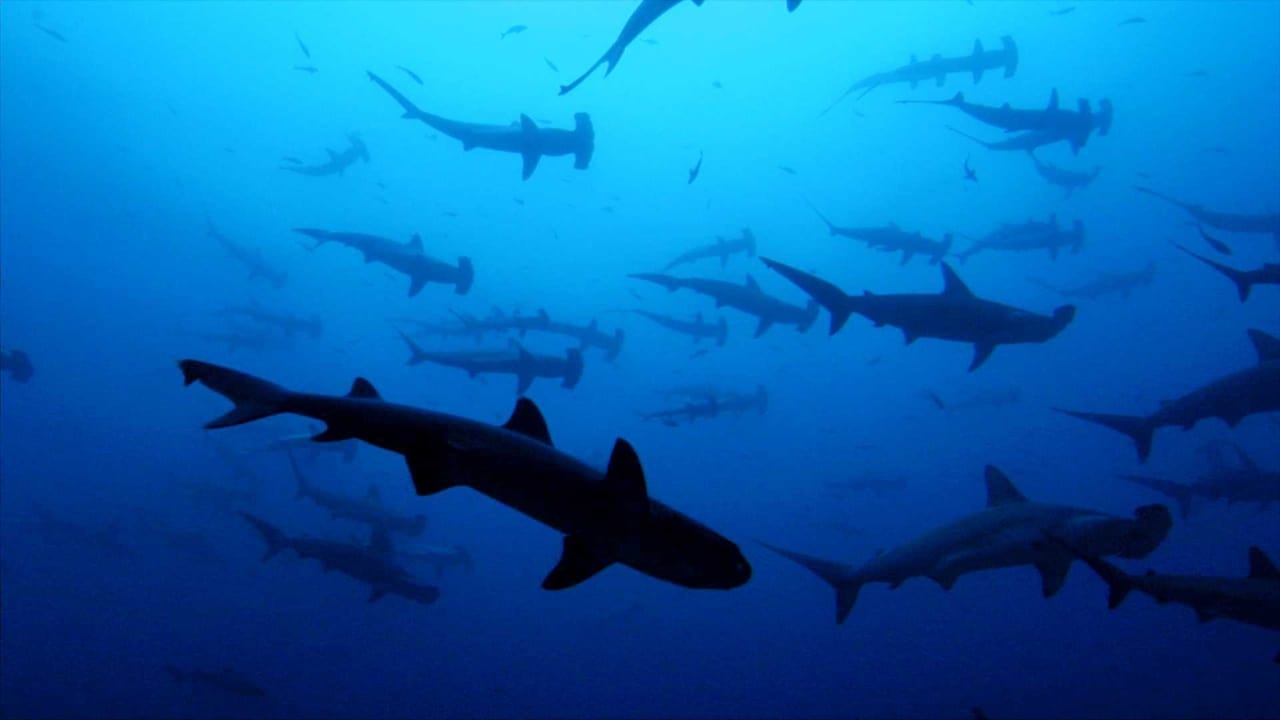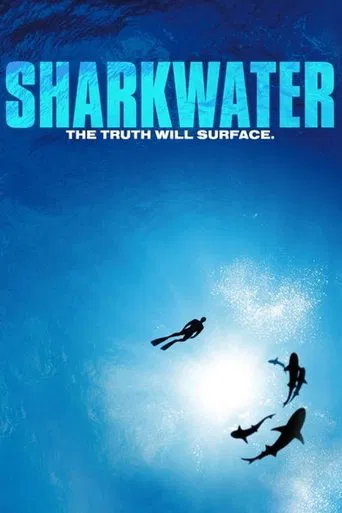

The documentary, "Sharkwater," by filmmaker and naturalist Rob Stewart, has, essentially, a twofold purpose: to rehabilitate the reputation of the shark by countering many of the myths and misconceptions that, over the millennia, have grown up around the creature, and to raise awareness in the general public that the shark is basically being hunted out of existence by poachers eager to sell its high-priced fin - shark-fin soup being one of the priciest delicacies in Asian cooking. Compounding the tragedy is the fact that the fin is largely inedible and used mainly for ornamentation. According to Stewart, 100 million sharks are killed each year to support this billion dollar industry, resulting in the world's shark population declining by an estimated 90%. Yet, because they are not cute and cuddly creatures, there is no real constituency fighting for sharks as there is for dolphins and seals. Stewart's film is a small-step attempt to rectify that situation.Stewart begins by demonstrating that sharks and humans can exist in harmony together. This he does by donning scuba gear and plunging into shark-infested waters where he proceeds to pet, cuddle and play with the animals, all without incident. He also cites a number of statistics to back up his assertion, the prime one being that only five people per year on average are killed by sharks while a hundred or so are killed annually by elephants. Then he moves on to the more political aspects of the issue. The movie sets up an interesting dichotomy between two realms of existence, juxtaposing the beauty of nature with the ugliness of the human world. For while we're being shown eye-popping, multi-colored images of life under water – all in gorgeous hi-def, I might add - there's plenty of drama taking place on the high seas, as Stewart joins up with Paul Watson, a "direct action" conservationist who has devoted his entire adult life to roaming the oceans, trying to put a halt to the wholesale slaughter of the creatures who reside therein. We see Watson and his crew getting into tense confrontations with poachers, only to find THEMSELVES the object of pursuit by Costa Rican authorities. Stewart points out how corrupt governments like the one in Costa Rica outlaw shark hunting on an official level – in order to maintain their appeal to eco-conscious tourists - then secretly profit from it by looking the other way as poachers illegally operate off their coasts.And it isn't just out of compassion for the shark that Stewart and his buddies have mounted a crusade against this mass poaching. It's out of concern for the ecosystem itself, as the diminution or, heaven forbid, the elimination of one of the world's great predators could upset the delicate natural balance in ways we can not yet fully comprehend – including potentially increasing the amount of carbon dioxide pumped into the atmosphere if plankton-eating creatures that are current shark prey are allowed to flourish in ever-greater numbers.But there is hope. At the time this film was released (2007), sixteen countries had already banned shark-finning (hopefully more effectively than Costa Rica), and the general public had begun to fight back, as evidenced by mass street protests that began springing up in places like Costa Rica to help raise awareness of the issue – much as this film itself does.Stewart - who wrote, directed, produced and served as cinematographer for this amazing and inspiring film - can be justifiably proud of both his mission and his work.
... View MoreI have heard nothing but great praises about this movie. Since I also love documentaries and animals, I set out to see it with great enthusiasm. The movie started off quite well, so I figured I was in for a treat. There were beautiful underwater shots, and it seemed like a legitimate documentary, although the narrator's lack of commentary skills, and low audio quality were foreshadowing bad things to come. I have seen enough documentaries to know to take every one of them with a grain of salt. The problem with documentaries is that (while they should be presenting facts objectively) they are all created to serve one purpose in mind: to convince the viewers of the author's ideas/ideals/point of view. In the case of Sharkwater the ideas and ideals of the author were at the level of an elementary school student. His 'scientific' reasoning makes perfect sense if you are either 6 years old, or are completely brain-dead. Don't get me wrong, I am all for saving this planet, and I agree, eradicating animal species one after another is unacceptable. However, a marine biology themed movie made by a complete amateur without any scientific training is probably going to do more damage to the cause than good. Introduce a complete hack of a Greenpeace activist as a 'subject matter expert', and some shameless self-promotion tactics in a pathetic attempt to be recognized as a hero, and you have a complete disaster. These guys filmed themselves sinking fishing vessels in international waters, armed with the argument that out there no one has authority over them, claiming themselves to be heroes for enforcing local laws. Get it? They were enforcing local laws outside of the country's borders. Needless to say, they were also outraged for being arrested by authorities for attempted murder. I guess, enforcing local laws in international waters has made them forget about the existence of international laws... no matter where you are, attacking other people, and trying to sink their boats (even if they are engaged in illegal poaching) is attempted murder. There is also a completely unnecessary section about the author being attacked by flesh-eating disease. Apparently the doctors had to amputate his leg. Then he made some phone calls to his relatives, assuring them that he had things under control, and that everything was going to be fine. All this with astounding confidence from a person who's about to have his leg amputated. Then guess what happened? He was tougher than the flesh-eating disease! He defied all odds against him, saving his own leg, ripping out the IV tube from his arm, and and then immediately rushing off to the very country that had an arrest warrant against him for attempted murder, just because his cause for saving the sharks was more important than his health, leg or life in prison... For these reasons I found this movie extremely pathetic. Don't get me wrong, there are a lot of people that loved this movie... however, now that I think about it, they all had the IQ of a tadpole...
... View MoreNow this was a movie that really made me think about our world and how cruel we humans can really be. Some parts (like the part with the people beating and almost torturing the turtle) in this movie really gets deep in your emotions (only if your an animal lover) and I did cry in this movie with some of the parts shown in this movie. It really did change me and the way I look upon humans. I was literally disgusted by some people on this earth and how they treat animals. If you are a true animal lover and are totally against animal cruelty, this is the movie to watch. It will make you cry if you truly care and change the way you think about not only sharks, but the whole world. I do recommend this movie to anyone but those who can't stand watching animals being beated and tortured or those who just who hate blood. We humans need to watch movies like this one to make a change in the world today. So let's stand together and make a difference!!!
... View Moreyou know, the scary thing is, living in Costa Rica, you can see blatant signs of deals between the Costa Rican Government and the Taiwanese..... Rob Stewart is a genius for bringing this to the attention of the public - something I have been fighting against for a while now. I have just come back from volunteering at Cocos Island, and it breaks my heart to see the long lines set up in supposedly protected waters. The message is out in Costa Rica that it is OK to fish here, and nothing will happen to you if you get caught.... we need more people like "Sea Shepherd", who care, and can see the devastation that this is causing....
... View More